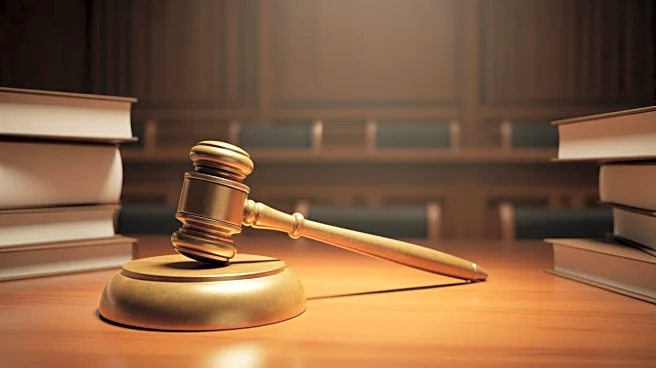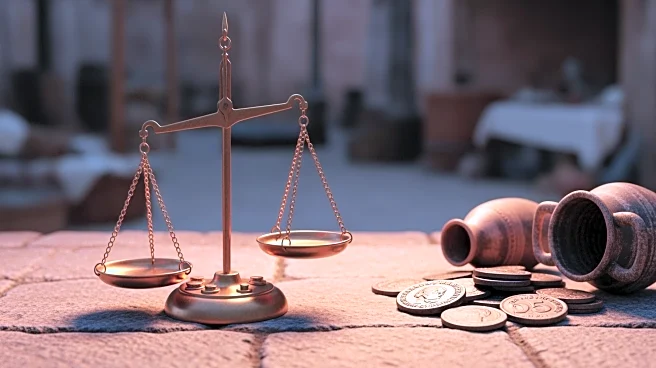What is the story about?
What's Happening?
ABC has suspended comedian Jimmy Kimmel's talk show following remarks he made concerning the assassination of Charlie Kirk. The decision came after Brendan Carr, the chair of the Federal Communications Commission (FCC), commented on Kimmel's statements. The suspension has sparked discussions about the changing rules of engagement in media and the broader implications of dissent under the current administration. Vivian Salama, guest moderator for Washington Week With The Atlantic, highlighted the FCC's clear message regarding media conduct. The panel discussion included insights from Zolan Kanno-Youngs, a White House correspondent at The New York Times, who noted the broader crackdown on dissent since Kirk's assassination.
Why It's Important?
The suspension of Jimmy Kimmel's show underscores the increasing scrutiny and regulation of media figures and their commentary in the current political climate. This action reflects a broader trend of media control and the potential chilling effect on free speech and dissent. The FCC's involvement suggests a heightened governmental interest in regulating media content, which could impact how media outlets and personalities approach sensitive topics. This development is significant for media companies, journalists, and public figures who may face similar repercussions for their statements, potentially altering the landscape of public discourse and media freedom.
What's Next?
The suspension may lead to further discussions and potential policy changes regarding media regulation and free speech. Media companies might reassess their content guidelines to avoid similar conflicts with regulatory bodies. Additionally, public and political reactions could influence future FCC actions and the administration's approach to media oversight. Stakeholders, including media organizations, civil rights groups, and political leaders, may engage in debates over the balance between regulation and free expression.
Beyond the Headlines
This incident raises questions about the ethical and legal boundaries of media commentary and the role of government in regulating speech. It highlights the tension between maintaining public order and protecting free speech rights. The long-term implications could include shifts in media practices and a reevaluation of the relationship between government and media entities.














